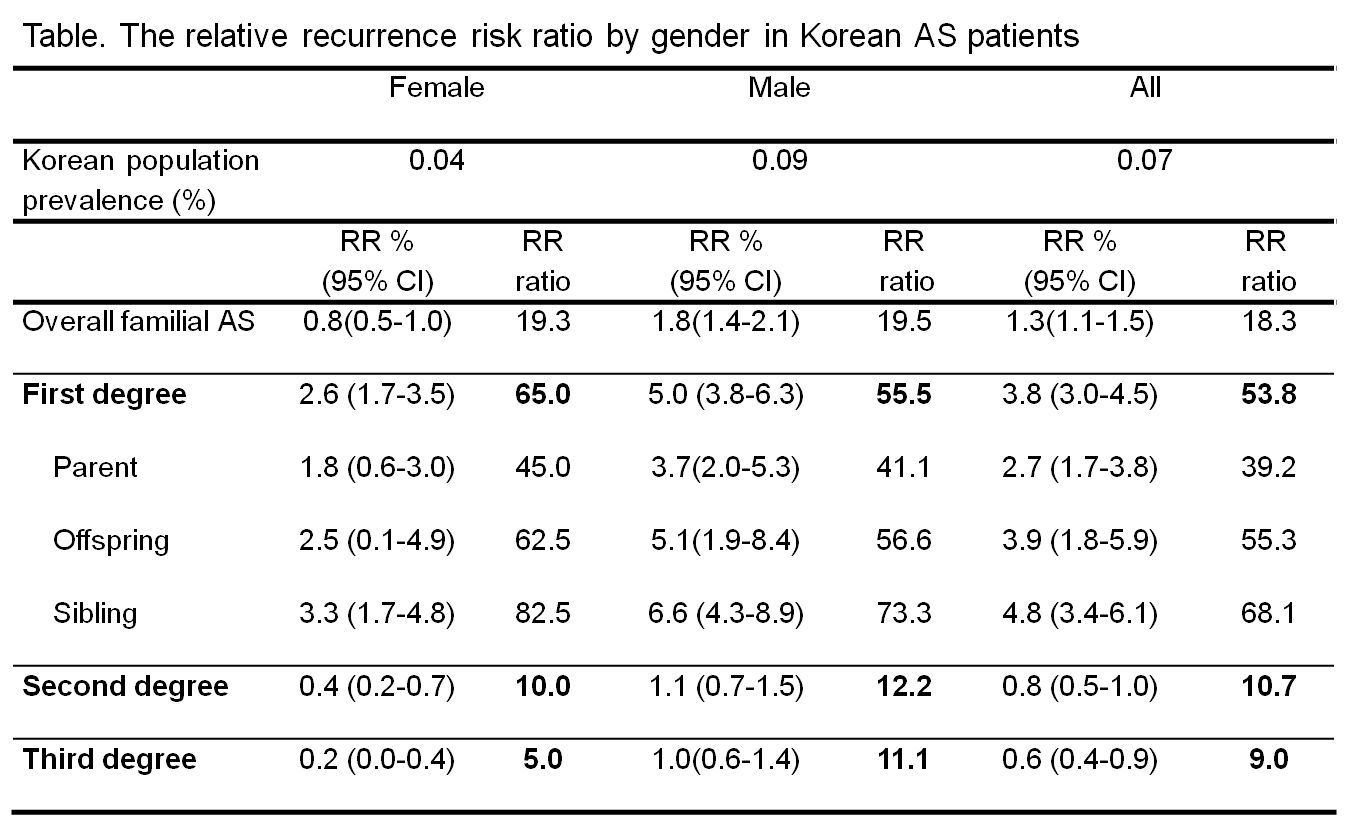Session Information
Session Type: Abstract Submissions (ACR)
Background/Purpose : Despite of the evidence of familial aggregation of ankylosing spondylitis (AS), familial tendencies are not fully explored. The purpose of this study was to examine the recurrence risk (RR) ratios in different degrees of relatives for Korean AS patients.
Methods: 526 consecutive unrelated AS probands (101 female, 425 male, mean age 35.5 years, mean disease duration 12.3 years, 88.7% HLA-B27 positive) fulfilling the modified New York criteria were face-to-face-interviewed by physicians, with elaborated questionnaire to investigate AS in other family members by the same criteria. A total of 12,051 relatives (2284, 5342 and 4425 for first, second and third-degree relatives (TDR), respectively) were included. The RR ratios for different degrees of relatives were elicited and subsequently stratified by gender and HLA-B27 status. The prevalence of AS among Korean in 2013 was estimated by the Korean National Health Insurance Service at 0.07%.
Results: The RR ratio was 53.8 for first-degree relatives (FDR) followed by 10.8, 9.0 for second-degree relatives (SDR) and TDR, respectively, indicating strictly decreasing in familiality. Among FDRs, siblings were more frequently affected than offspring or parents. For male probands, the overall RR ratio for FDR was 55.5, and 65 for female, implying higher familiality of female over male. Remarkably, all of affected SDRs and beyond were relatives of HLA-B27 positive probands.
Conclusion: We demonstrated strongest familiality of AS in FDRs, particularly in siblings. Despite of similar sharp decline pattern of familiality beyond SDR, lower RR ratio in FDR in our study, compared to previous Caucasian reports, indicates ethnic difference in inheritance of the same disease. This study suggests familial tendency for AS can be explained by degrees of relationship, gender and HLA-B27, warranting further studies.
Disclosure:
H. W. Kim,
None;
H. R. Choe,
None;
W. I. Chang,
None;
Y. G. Kim,
None;
B. Yoo,
None;
J. W. Hur,
None;
T. H. Kim,
None;
S. Lee,
None;
E. Y. Lee,
None.
« Back to 2014 ACR/ARHP Annual Meeting
ACR Meeting Abstracts - https://acrabstracts.org/abstract/unraveling-the-familial-tendency-for-ankylosing-spondylitis-in-korea/


